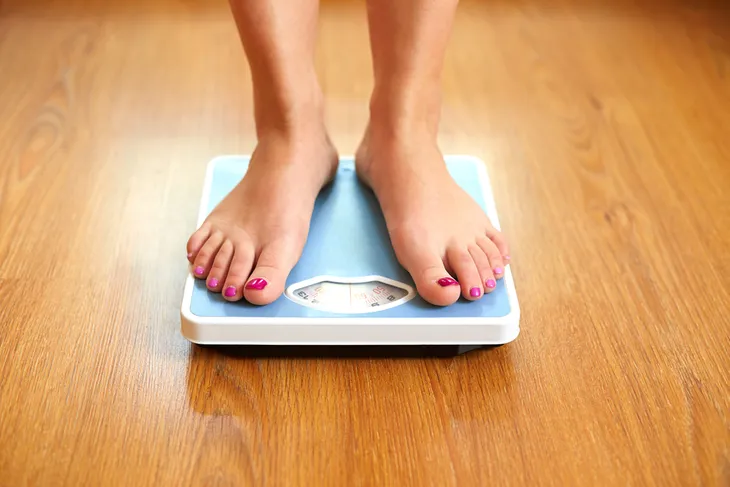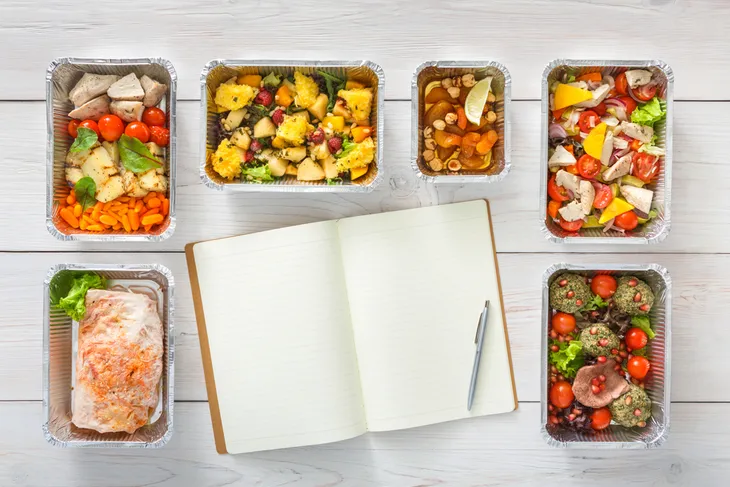What better time to kick-start your goals than in the morning! Losing weight is not an easy task but with consistency and determination, you can achieve the goals you’re after. While it’s important to stay consistent throughout the day there are a few morning habits that can help set you up for success. Simple yet effective habits may be just what you need to hit your goals!
Get Enough Sleep
Many people underestimate the power of sleep. In fact, the Centers for Disease Control and Prevention (CDC) explains, one in three adults don’t get enough sleep. But sleep isn’t only essential for your overall health, it may help you lose weight too, according to a study.
So how does this affect your morning routine? If you don’t get enough sleep perhaps you should hit the snooze button and get more rest (if you can!). Alternatively, you might need to start setting an earlier bedtime routine to ensure you get the recommended 7 to 9-hours each night.
Set Your Intentions
After waking up, set your intentions for the day. This can be as simple as taking a quiet 5-minutes to think about your thoughts and feelings, writing in a journal, or listing your goals for the day.
The American Psychological Association explains, practicing mindfulness offers an array of benefits from relieving stress and improving focus and memory to losing weight.
Step on the Scale
After setting your intentions for the day, hop on the scale. Experts say the best time of day to accurately weigh yourself is in the morning right after waking up and going to the bathroom. This allows your body adequate time to process and digest food.
One study published in the US National Library of Medicine found that individuals who weighed themselves daily lost about three times more weight compared to individuals who weighed themselves less often. Don’t forget to track your progress!
Drink a Glass of Water
After your morning weigh-in, pour yourself a glass of water. WebMD says, “one or two glasses of plain H2O before you eat breakfast may help you lose weight.”
Water contains no calories and is not only refreshing after a night’s sleep, but it can help curb your appetite to prevent you from overeating at breakfast. Water is also essential for your overall health as it protects your organs and tissues, helps lubricate your joints, and carries nutrients and oxygen to cells.
Work Out
To further improve your weight loss efforts consider working out in the morning instead of at night! LiveStrong says, “when researchers from Tehran University examined the effects of morning or evening aerobic exercise, they found that getting moving early led to lower caloric intake later in the day, as well as a more significant change in body weight, BMI, abdominal skinfold thickness and abdominal circumference.”
Working out isn’t only for weight loss, it’s important for your overall health too. Exercise can help keep your bones and joints strong, and it may also help prevent certain diseases such as high blood pressure, cholesterol, heart disease, and more.
Start Your Day With Protein
Now that you’ve had your morning work out it’s time to make some breakfast! Whether you have time to enjoy breakfast at home or need to eat as you head out the door, you should start your day with protein.
WebMD explains that protein is essential for weight loss because it helps you feel fuller for longer. The source also notes, “your body uses more calories to break it down than it uses for carbs or fat.”
Protein-Rich Foods
The good news is there are plenty of protein-rich foods to choose from. You could make a turkey sausage and egg sandwich (on whole-wheat bread) to enjoy on the go. Or blend a smoothie made of Greek yogurt, natural (sugar-free) peanut butter, and berries.
Other protein-packed foods include tofu, quinoa, almonds, avocados and so much more. LiveStrong suggests for optimal fullness aim to eat about 25 to 30-grams of protein at breakfast.
Enjoy a Cup of Coffee
Is a cup of coffee part of your morning routine? The good news is it might provide weight loss benefits too! One study found that drinking 1-cup of coffee helped stimulate “brown fat” (brown adipose tissue or BAT) which may help your body burn calories more quickly.
When making your coffee, be sure to steer clear of flavored syrups or cream, or any additions with added sugar. These ingredients can add tons of unnecessary calories to your drink. Instead, opt for skim milk, sugar-free syrups, or enjoy it black.
Plan Your Meals for the Day
Another way you can help your weight loss efforts is to plan out your meals for the day in the morning. Planning your meals and snacks will help prevent you from choosing high-calorie, non-nutrient foods like fast-food meals, especially when you’re pinched for time.
If you’re heading out for the day be sure to pack all of the meals and snacks that you will need. If you need to shop for groceries be sure to create a shopping list and stick to it. This will make you less likely to buy items that don’t fit in your meal plan.
Change Your Commute
Do you drive to work? Is it possible to walk or bike to work instead? WebMD notes that long car rides can lead to weight gain.
If your morning commute is too far, consider parking a few blocks away and walk the remaining distance. Alternatively, you could add walking to your morning working before heading to work.
Enjoy the Sun
In case you need another reason to enjoy the sunshine, it turns out it may help your weight loss efforts.
According to one study, over a period of 7-days, 54 participants wore monitors to record their exposure to the morning light. The results showed the individuals who spent more time in the morning sunlight had lower BMIs compared to the individuals who were in the dark (regardless of what they ate, their activity level, and their age).
The morning light can help regulate your circadian rhythm (internal clock) which helps your sleep schedule. As we know sleep plays an important role in weight loss. To gain these benefits, you only need 20 to 30-minutes of sunlight between the hours of 8 a.m. and 12 p.m.
Practice Mindfulness
Practicing mindfulness can also impact how you eat. By practicing mindfulness during mealtimes, you’ll be able to slow down and think about what you’re eating.
Focus on the taste, smell, and how your food looks and appreciate it. This intentional approach may help prevent stress-based eating. One study also found that this approach was able to help decrease binge eating and emotional eating.















